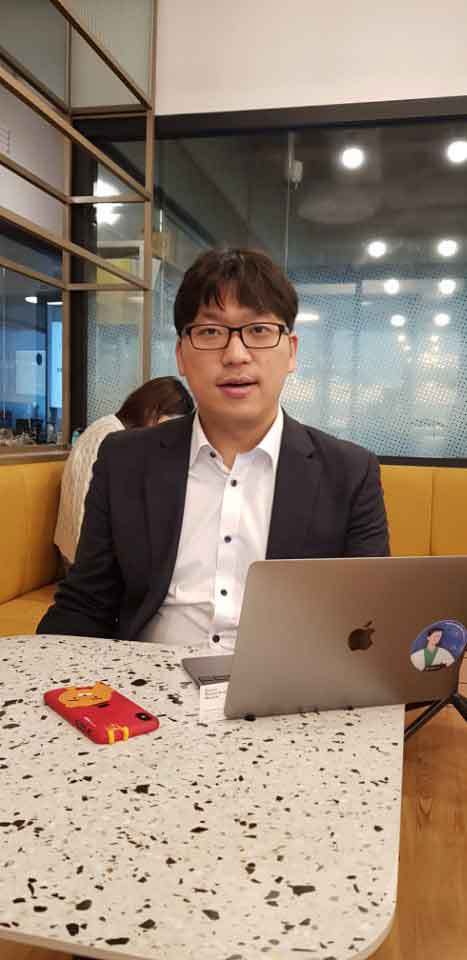
As the Fourth Industrial Revolution is afoot, the medical sector has also increased its interest in areas such as block-chain technology and artificial intelligence. Medibloc, however, turned its head to cryptocurrency, an area not yet explored by the medical community.
Lee Eun-sol, the CEO of Medibloc, sums up his company’s plans as combining block-chain technology and cryptocurrency into giving patients control over their medical data.
“MediBloc is a decentralized healthcare information ecosystem built on block-chain technology for patients, healthcare providers, and researchers,” Lee said in an interview with Korea Biomedical Review. “This platform allows us to track and record everything revolving around a patient’s healthcare, including doctor visits, medications and surgeries.”
By accumulating the patient’s medical history data into a single, concise, reliable format, individuals can take charge of dispersing their records and have a say in where the data is used, Lee added.
"The medical industry and patients have constantly demanded the need for medical information exchange, but a clear solution has not yet been provided," Lee said. "Our platform can bring innovation to the healthcare industry by building a system that can support individualized health care and patient-centered care.
Currently, patients often have to repeat tests or shots they have received before moving to a new hospital. Patients can visit their former hospital and obtain information such as medical examinations and results, but the procedure is troublesome and complicated, Lee noted.
Although the discussion on the medical information integration system has been going on for some time, it is at a stalemate with issues such as reliability and security blocking further development, he added.
MediBloc plans to resolve this issue by granting medical information ownership to patients. However, even if the patient gains data ownership and management, the company secures the data through a blockchain model so it cannot be modified at will, ensuring the integrity and reliability of the medical information.
“We intend to make our smartphone application as the new format in storing and using patient information,” Lee said. “Based on this application, we are building a platform that can combine everything from patient information generated in hospitals and wearable health devices.”
Medibloc’s application is at its alpha stage, and the company plans to release the beta stage of the application in the second half of this year. Other companies can also link their health application or device to Medibloc’s platform
The company’s top management believes that the application can also satisfy the need of doctors.
“As the data need for every department in hospitals are different, by sharing a certain patients information to doctors that need the information can increase the quality of patient care,” Lee said. “Also, by implementing our system, a hospital can obtain the image of a state-of-the-art hospital.”
For patient benefits, the company uses an ERC20 MED token reward system, which encourages patients to contribute to the data ecosystem through profit empowerment. With such beneficial aspects, the company has recently announced its intention to leave Quantum, one of the most common block-chain platforms, and build their platform.
"Building our block-chain platform increases responsiveness and flexibility for service improvements," Lee said. "Securing our platform also increases the compatibility to work with other projects, speeds data throughput and processing and lowers transaction costs.”
Other countries have also started to notice the potential of the company’s platform.
The company announced that its plans to list its cryptocurrency on DEx.top, an ERC Token Exchange supported by Bitmain, the world’s largest cryptocurrency mining company.
"It is very rare to make a listing at the same time as the opening of exchange as big as DEx.top,” Lee noted. “The listing is a good example of MediBloc’s technology and competitiveness.”
Lee did not hold back the company’s ambition in going global.
“We are currently targeting Asian markets,” Lee said. “To this end, our company is meeting with private hospitals in Japan and health authorities in Singapore.”
As each national system is different in medical information exchange, we are currently calibrating our systems to match both international and local standards, he added.
“The system can also help developing countries, which are building their medical information exchange system, as the application can easily adapt during the preparation process,” Lee said.

